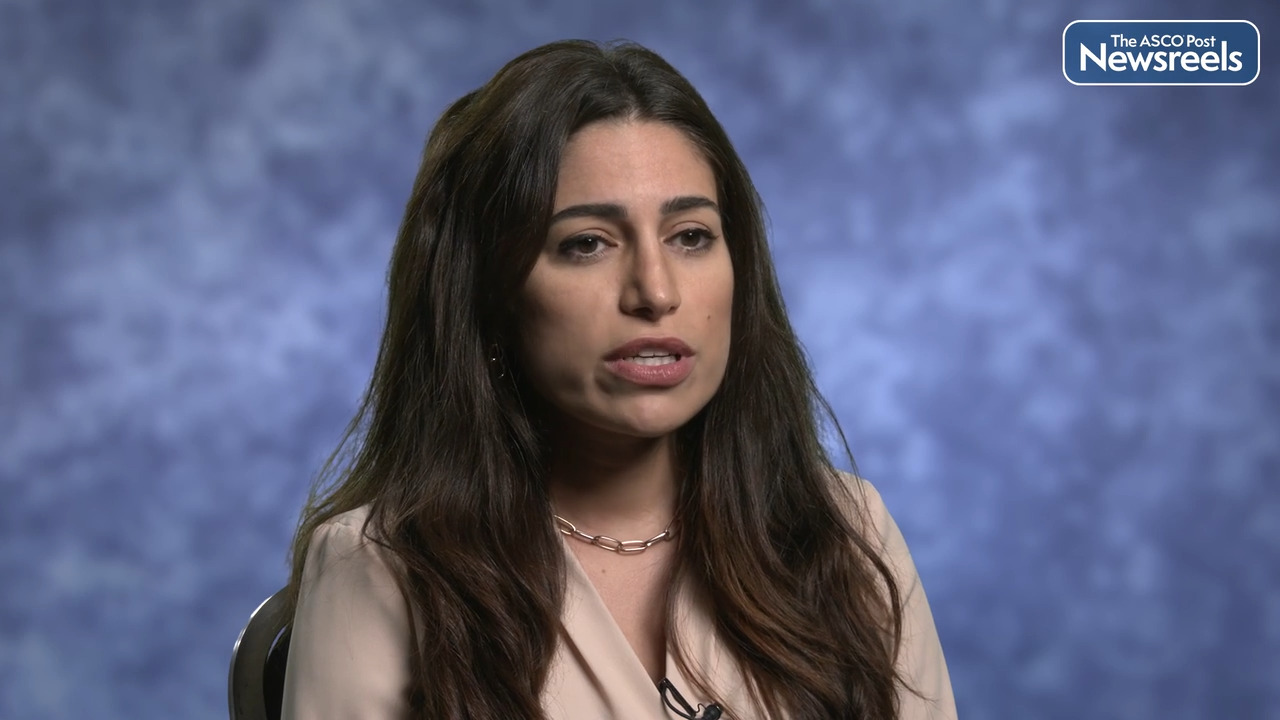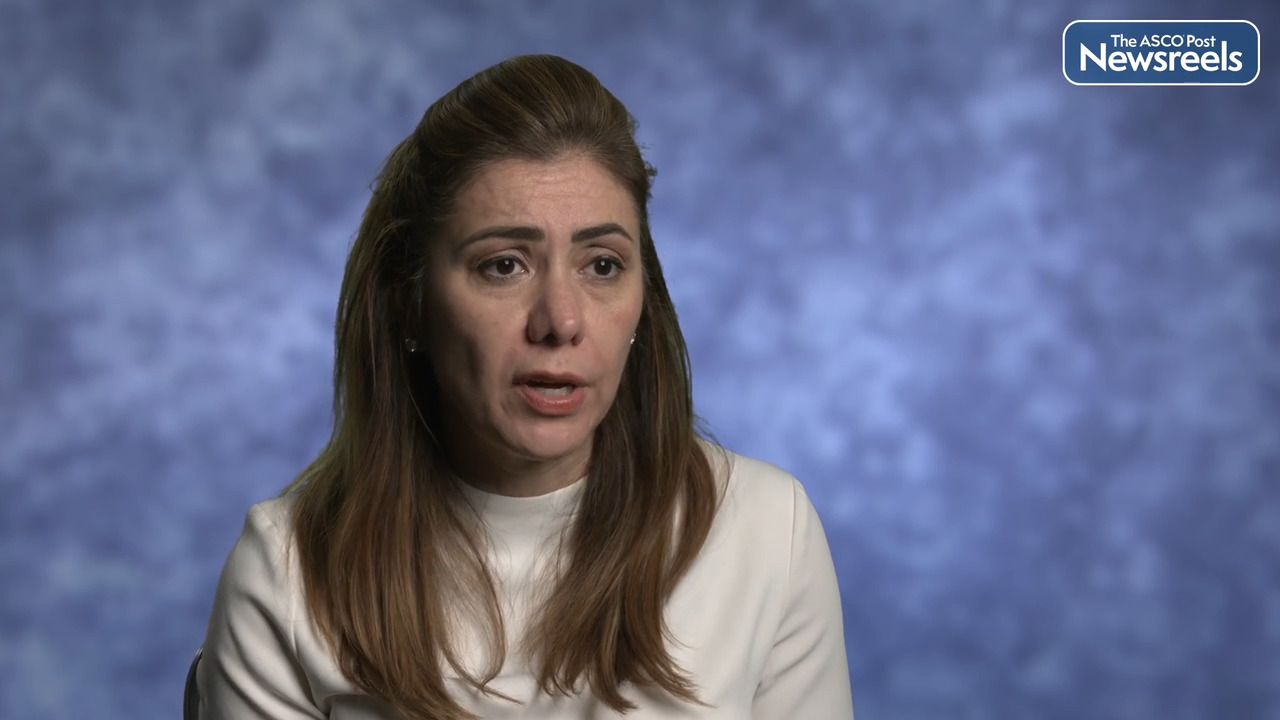Per Karlsson, MD, PhD: New Data on Breast-Conserving Surgery, With or Without Radiotherapy
2022 San Antonio Breast Cancer Symposium
Per Karlsson, MD, PhD, of Sweden’s University of Gothenburg and the Sahlgrenska Comprehensive Cancer Center, discusses results from the POLAR study, which was a meta-analysis of three clinical trials of breast-conserving surgery with or without radiotherapy. POLAR is the first genomic classifier that appears not only to be prognostic for locoregional recurrence, but also predictive of radiotherapy benefit. Although patients with breast cancer who had a high POLAR score benefited from radiotherapy, patients with a low score did not, and may be candidates for omission of radiotherapy after breast-conserving surgery (Abstract GS4-03).
Transcript
Disclaimer: This video transcript has not been proofread or edited and may contain errors.
We have performed a patient level meta-analysis and we have included three different studies, studies randomizing patients to radiotherapy or no radiotherapy. The studies included were the Swede BCD 921 study, the Princess Margaret study, and the Scottish Conservation RT Trial. The patient level meta-analysis has the objective to analyze the performance of the POLAR signature as a prognosticator for locoregional recurrences in the new RT arm and also as a potential predictive assay for radiotherapy benefit.
It's well known that radiotherapy reduces the risk for locoregional recurrences in all different clinical subgroups today. There are definitely some need to find new classifiers to understand which patient we can omit the radiotherapy for.
We have within the Swedish trial identified a signature for RT remission, but that signature must be validated in further studies. Now we have performed this patient-level meta-analysis, but to send some word about the development of the signature in the Swedish study, we have collected all the blocks from the tumors and we have punched the tissues and isolated RNA, and this RNA has given us gene expression info. We have used array-based methods for that.
Using this information, we have filtered the genes most prognostic for locoregional recurrences in the new RT arm. We have further [inaudible 00:01:52] the genes at the enrichment analysis. This filtering has resulted in genes that were fed into a regression model. This regression model resulted in the POLAR score.
The POLAR score consists of 16 genes. The gene functions here is about immune response and also about proliferation. Now we have used this POLAR score and applied that in this patient meta-analysis, and we could see that POLAR could prognosticate the locoregional recurrence in all the new RT arm in all these three different studies. We also find that the POLAR RT had a significant interaction, which means that this classifier is a predictive for radiotherapy benefit. But all this has been done retrospectively. So going further to use it in clinical practice, I think we need further validation, but this is, to our knowledge, the first genomic classifier that can predict radiotherapy benefit. So hopefully in the future we can use this assay to know which patient we can omit radiation. So that's the way forward for us.
Related Videos
The ASCO Post Staff
Yara Abdou, MD, of the University of North Carolina, discusses results from the RxPONDER SWOG S1007 study, which showed that non-Hispanic Black women with hormone receptor–positive/HER2-negative breast cancer with one to three involved lymph nodes and a recurrence score of ≤ 25 have worse outcomes than non-Hispanic White women. In addition, Black patients were more likely to accept treatment assignment than their White counterparts and were just as likely to remain on estrogen therapy at 6 and 12 months, suggesting that outcome differences may be less likely attributable to lack of treatment compliance within the first year (Abstract GS1-01 ).
The ASCO Post Staff
Ruth O’Regan, MD, of the University of Rochester Medical Center, discusses the Breast Cancer Index (BCI), a genomic assay that can assess the risk of late distant recurrence (5–10 years after diagnosis) of hormone receptor–positive, early-stage breast cancer. Among premenopausal women with this disease who were enrolled in the SOFT trial, those with a high BCI score had an increased risk of distant recurrence. Those with a low BCI score benefited more from the addition of ovarian suppression therapy to endocrine therapy after 12 years of follow-up (Abstract GS1-06).
The ASCO Post Staff
Judy C. Boughey, MD, of Mayo Clinic, talks about why breast-conserving therapy may be a treatment option for some patients with multiple breast lesions. For most patients who present with two or three sites of cancer in one breast, mastectomy is recommended. But results from the ACOSOG Z11102 (Alliance) suggest that for women with multiple ipsilateral breast cancer, breast-conserving surgery with adjuvant radiation therapy and lumpectomy site boosts may be beneficial (Abstract GS4-01).
The ASCO Post Staff
Mariana Chavez-MacGregor, MD, MSc, of The University of Texas MD Anderson Cancer Center, discusses phase III results from the SWOG S1207 trial which was designed to evaluate the role of adjuvant everolimus in combination with adjuvant endocrine therapy among patients with high-risk, hormone receptor–positive, HER2-negative early-stage breast cancer. Adding everolimus did not improve invasive disease–free or overall survival and was associated with high rates of adverse events (Abstract GS1-07).
The ASCO Post Staff
Aditya Bardia, MD, MPH, of Massachusetts General Hospital, discusses results from the phase III EMERALD trial, the first study to demonstrate improved progression-free survival vs standard of care in estrogen receptor (ER)-positive, HER2-negative metastatic breast cancer with one to two prior lines of endocrine treatment, with or without one line of chemotherapy. This finding applied to all patients in the study, including the subgroup with ESR1 mutations (Abstract GS3-01).





